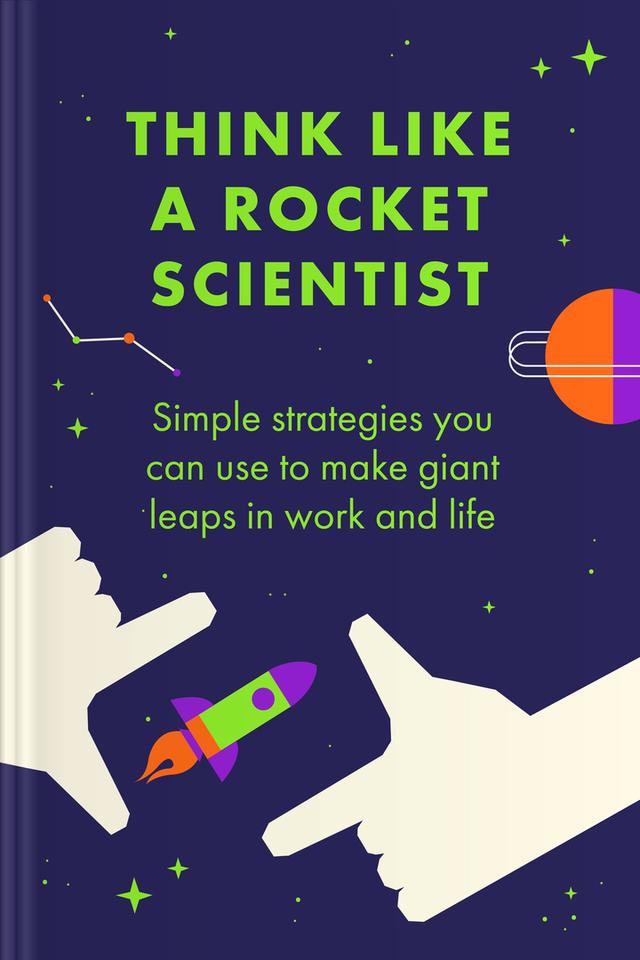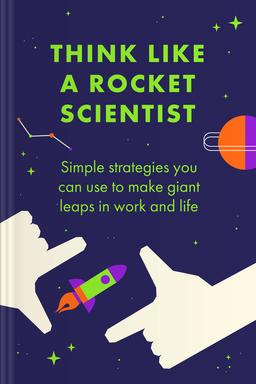You’ll learn
- To navigate uncertainty like a pro
- How to innovate beyond the status quo
- About mastering first principles thinking
- Ways to harness the power of divergent ideas
Protect the world’s peace. Donate to support Ukraine

first KEY POINT
There was little knowledge about space science in September 1962 when, at the Rice University stadium, President John F. Kennedy pledged to land a man on the moon. Some of the metal alloys the rocket would be made of had yet to be invented. It was indeed a moonshot.Less than seven years later, the pledge was fulfilled. This monumental stride represents the remarkable success of a specific mindset adopted by rocket scientists, transforming what seemed impossible into reality.
Rocket scientists prioritize long-term breakthroughs over short-term results. They view setbacks as puzzles rather than overwhelming obstacles. Unlike other science fields, hundreds of millions of dollars and human lives are at stake with rocket science. A single error or misjudgment could cause a devastating disaster.Thinking like a rocket scientist enables a shift in perspective, allowing you to reshape your world and the world around you. Rocket science thinking is a necessity for keeping pace with changes that occur at rapid speeds. In this summary, you will find life-changing insights into creativity and critical thinking that anyone can acquire without a Ph.D. in astrophysics. The process of a rocket's successful launch illustrates strategies helpful in handling life's challenges without delving into the complex details of rocket propulsion.
second KEY POINT
When you hear that someone is a rocket scientist, you admire them as if they have a different, superior brain. No academic degree is specifically labeled 'Rocket Science'; no formal job is named 'Rocket Scientist.’ This colloquial term describes the scientific and engineering principles behind space exploration. People admire rocket scientists' willingness to dance with uncertainty until they make a breakthrough. This virtue is not commonplace.We inherited our Paleolithic ancestors' self-preservation skills that helped them stay safe from poisonous foods and predators. This phenomenon is not very useful because we live in the information age, where critical thinking and creativity are vital for survival.Rocket scientists are dissatisfied with the status quo, and so should we. For companies to stay relevant, they must focus on the windshield rather than the rear-view mirror. When we fail to exercise our critical-thinking muscles, we are prone to misinformation and become agents that spread it. Once misinformation circulates and echoes, it often gains acceptance as truth.We should learn and adopt the problem-solving strategies used by rocket scientists — taking control of life and challenging preconceived notions, stereotypes, and habitual ways of thinking — to identify misinformation and pseudoscience. We can then shape reality to our desires and carve innovative paths for the future.Imitating rocket scientists will make business leaders ask pertinent questions and utilize practical tools in decision-making. Instead of following current trends, they will venture into uncharted territories, achieving what was once deemed unattainable.

Continue reading with Headway app
Continue readingfirst KEY POINT
second KEY POINT
third KEY POINT
fourth KEY POINT
fifth KEY POINT
sixth KEY POINT
seventh KEY POINT
eighth KEY POINT
ninth KEY POINT